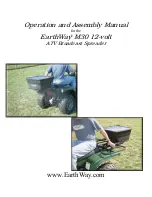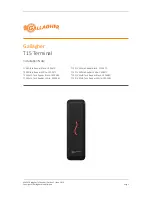
14
307306-C
Page Rev. A
Please Give Part No., Description
& Unit Serial No.
NL450C
NEW LEADER
HEADER
11.
When batteries are
being charged or
discharged,
they
generate
hydrogen
and oxygen gases. This
combination of gases
is highly explosive. DO
NOT SMOKE around
batteries—STAY AWAY
FROM FLAME—don’t
check batteries by shorting terminals as the
spark could cause an explosion. Connect and
disconnect battery charger leads only when
charger is “off”. Be very careful with “jumper”
cables.
12.
Batteries contain strong sulfuric acid—handle
with care. If acid gets on you, flush it off with
large amounts of water. If it gets in your eyes,
flush it out with plenty of water immediately and
get medical help.
13.
Hydraulic fluid under
high pressure leaking
from a pin hole are
dangerous as they
can penetrate the skin
as though injected
with a hypodermic
needle. Such liquids
have a poisonous effect and can cause
serious wounds. To avoid hazard, relieve
pressure before disconnecting hydraulic
lines or performing work on system. Any
fluid injected into the skin must be treated
within a few hours as gangrene may result.
Get medical assistance immediately if such
a wound occurs. To check for such leaks,
use a piece of cardboard or wood instead
of your hand. Make sure all hydraulic
fluid connections are tight and all hydraulic
hoses and lines are in good condition before
applying pressure to system. Wear protective
gloves and safety glasses or goggles when
working with hydraulic systems.
14.
The fine spray from a small hydraulic oil
leak can be highly explosive—DO NOT
SMOKE—STAY AWAY FROM FLAME OR
SPARKS.
GENERAL SAFETY RULES
MAINTENANCE SECTION CONTINUED
SAFETY















































